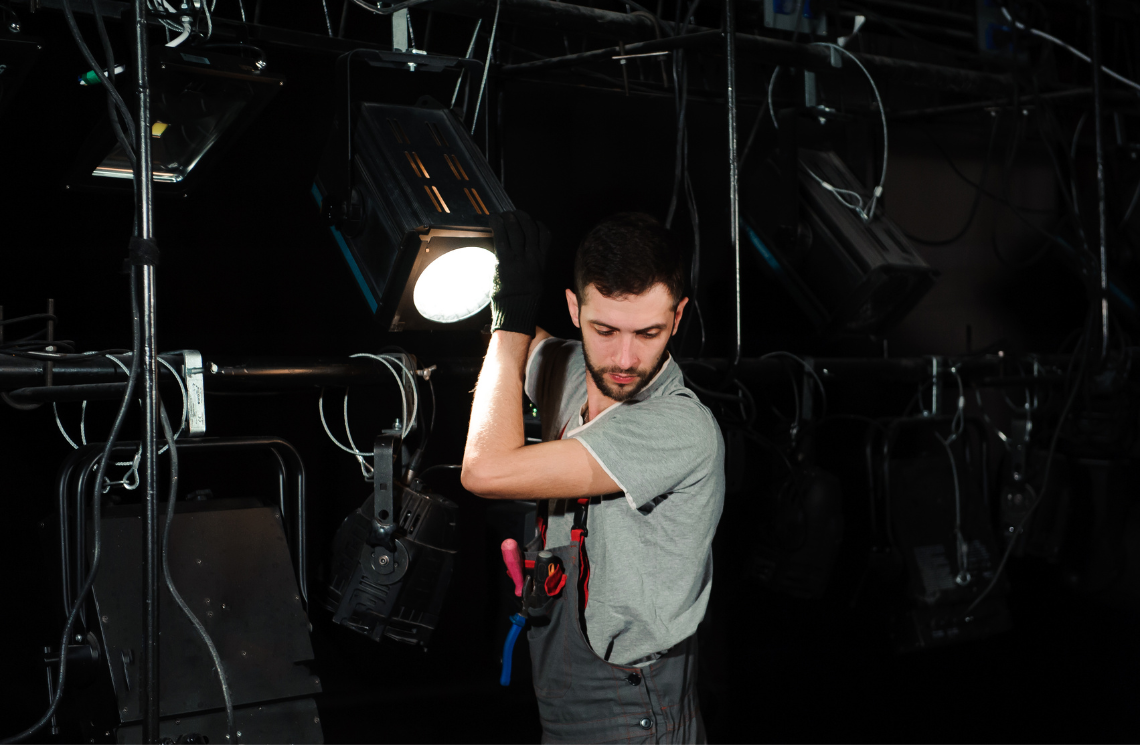
Key Findings: Exploring the State of Technical and Production Skills in the Live Performing Arts Industry in the Maltese Islands
In 2023, ARC Research & Consultancy undertook an exploratory research exercise to examine the current landscape of technical and production skills within the live performing arts industry in the Maltese islands. This study sheds light on the working conditions, skill sets, educational opportunities, and environmental sustainability practices prevalent in the industry. Insights were gathered from producers, venue managers, and technical creatives by means of a questionnaire. For the purpose of our study, the term ‘technical creatives’ incorporated skilled individuals/teams with a technical and/or production function in the context of the local live performing arts industry, encompassing both design and operation roles.
The questionnaire was sent out directly to a database of 170 individuals representing Public Cultural Organisations, voluntary organisations and private companies as well as individual practitioners. We received a total of 48 responses by the deadline stipulated (20 producers, 6 venue managers and 22 technical creatives). 50% of the respondents were freelancers, highlighting the significant presence of independent professionals in the industry.
Despite the limited scope of the study, several critical issues were identified:
Lack of Information on Skilled Workforce:
There is a significant gap in understanding the skilled individuals contributing to the live performing arts industry, which hampers efforts to support and nurture talent effectively. This also includes difficulties in identifying emerging talent.
Shortage of Skilled Workers:
Many producers reported a shortage of skilled technical creatives, presenting major challenges to production quality and delivery. The majority of respondents claimed that ‘there is an insufficient amount of skilled technical creatives’ when compared to the needs of the local live performing arts industry.
Challenging Working Conditions:
According to the respondents, many professionals face adverse working conditions, which diminish the attractiveness of the industry.
Low Motivation:
Poor working conditions are driving skilled workers away, increasing the scarcity of qualified personnel. The majority of technical creatives who answered the questionnaire claimed that while they are motivated to work in the live performing arts industry, other sectors might be more enticing (higher pay, more stable conditions, better work conditions etc.).
Educational Deficiencies:
There is a notable lack of comprehensive education and training opportunities, limiting the development of essential skills. In general, the respondents commented about a sense of detachment between education and the industry. Very few respondents agreed with the statement that education is playing an effective role in the development of the industry. The majority of respondents stated that there is room for further specific training, across all disciplines, in both the formal and the informal education systems. The predominant challenges or threats in this area according to the respondents seem to be ‘limited financial investment in technical skills development’, ‘insufficient training opportunities for emerging technologies’ and ‘rapid technological advancements affecting skill relevance’.
Limited Health, Safety, and Environmental Awareness:
In general, the industry shows a deficiency in consideration for health and safety standards, as well as environmental sustainability practices, despite a level of awareness.
Recommendations
Building on these findings, there are a number of actions which could be implemented to address these challenges:
- Conducting further research to gain a deeper understanding of the current landscape and the skilled professionals within the sector.
- Engaging with various stakeholders to identify strengths, weaknesses, opportunities, and threats, thereby informing targeted initiatives.
- Collaborating with relevant entities to develop and implement programmes aimed at addressing skill deficiencies, improving working conditions, and enhancing educational opportunities.
- Opening dialogues with other potential stakeholders such as Screen Malta, the National Skills Council, OHSA, the Crafts Council, and environmental consultants, along with local entities like Regional Councils and Band Clubs, to explore collaborative opportunities.
- Creating training modules focused on health and safety and environmental considerations to promote well-being and sustainability.
- Providing resources and support networks to improve working conditions and foster an inclusive and supportive environment.
- Connecting with international partners to share knowledge, best practices, and opportunities for engaging in related projects.
This study serves as a crucial first step in understanding the multifaceted challenges facing the live performing arts industry in the Maltese islands. The efforts proposed seek to create a more resilient, skilled, and sustainable live performing arts sector in Malta, ensuring a vibrant future for this industry.